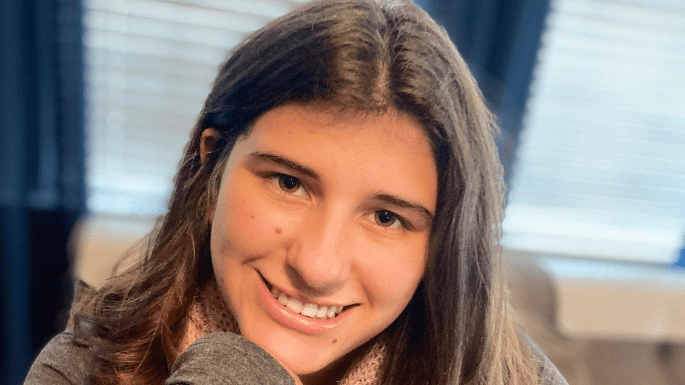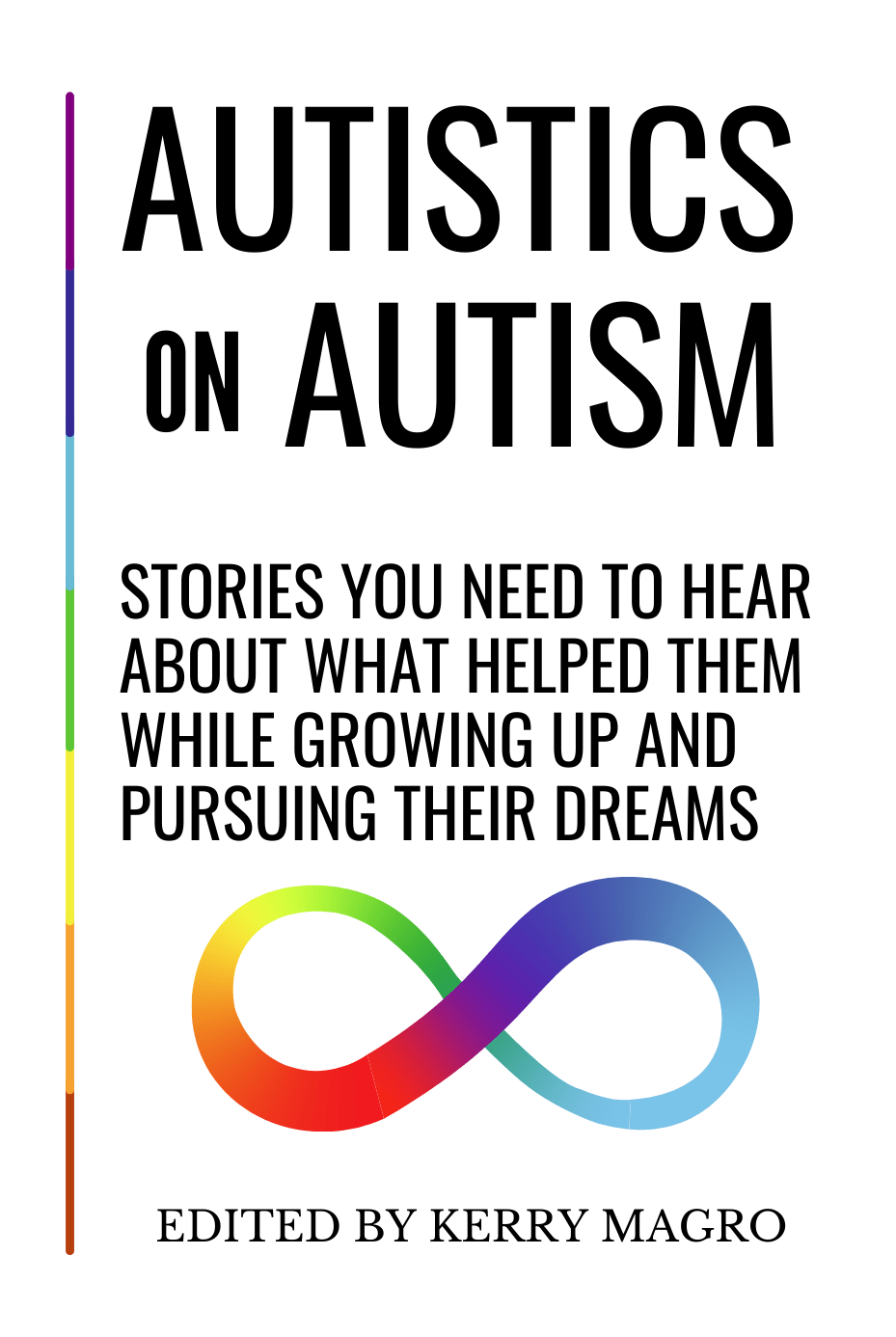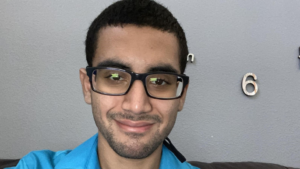This guest post is by Rebecca Engle, a young woman who was diagnosed with autism and has been accepted to University of the Incarnate Word. Rebecca is applying for the Spring 2023 Making a Difference Autism Scholarship via the nonprofit KFM Making a Difference started by me, Kerry Magro. I was nonverbal till 2.5 and diagnosed with autism at 4, and you can read more about my organization here. Autistics on Autism: Stories You Need to Hear About What Helped Them While Growing Up and Pursuing Their Dreams, our nonprofit’s new book, was released on March 29, 2022, on Amazon here for our community to enjoy featuring the stories of 100 autistic adults.
As a young child, I failed to meet normal developmental milestones. More specifically, I was completely non-verbal, overly sensitive to outside input, and prone to extreme outbursts. For years, my parents had suspected something may be wrong, however each time they asked a doctor about their suspicions they were told not to compare my progress to my brother’s milestones, all things would come in time. My delays went undiagnosed until I was just over 3years old. When my parents finally got a doctor to listen, tests showed I was functioning equivalent to a 6-month-old verbally and approximately 18 months developmentally. As a result, I began visiting Speech and Occupational Therapists. My diagnosis ranged between Apraxia, Autism and Developmental Disorder. After months of work, the therapists informed my parents that I would most likely never be verbal or function independently. Without going into too much detail, it ended with my parents removing me from their care. The military pediatrician we were assigned to at the time argued that my parents should trust the expert. She went so far as to tell my mother to enjoy the peace that the extensive therapy hours would provide and suggested she find a new hobby to fill the break. My mom told her she found the perfect past time, helping her daughter. She changed doctors, spent nights researching and days trying using every bit of what she was learning to try and coax me into speaking, or at the very least focusing.
One benefit of having a rough diagnosis on paper was that I became eligible for the public school district Pre-K Special Education program. I was assigned to a classroom full of Special Needs children with varying diagnosis led by a young teacher and an elderly paraprofessional, both women were kind but exasperated by trying to keep the class manageable. At the time, the most difficult thing about working with me, was trying to get me to focus on learning without meltdowns. The list of things that sent me into a fit was long; being behind closed doors, the touch of an odd fabric, a constant stimming, compulsive eating, rocking and an inability to be soothe or self-soothe once a tantrum began, even to the point of violence. I was closing in on four years old, and still had no words to describe what I wanted, needed or felt. When my parents picked me up at the end of the final day of the first week my teacher met them close to tears. She explained that she felt terrible but did not think she could possibly keep me in her class. My mom understood but begged her to just please give it a few more weeks. Thankfully, the teacher reluctantly agreed.
Throughout this journey, my mom had been keeping a journal about my behavior and speech. This included writing down any changes to routine that seemed to help. She was reading a book at the time about diet and behavior. After researching the connection between petroleum-based food dye and behavior she eliminated them from my diet. Initially it was rough, my tantrums were off the charts. I would wake up in the middle of the night screaming and trying to get snacks out of the pantry. Three small kids in the house meant a good deal of snacks were focused on colorful gummy treats and bright rainbow cereal. My dad would load me in the car and drive out on lonely roads just so I could screech and cry without waking the neighbors. Soon though the tantrums subsided, and my focus improved. I was by no means “cured” but I was certainly clearer. So much even my teachers noticed and found she was much easier to work with in class. My food dye sensitivity would be crystal clear in the years following, even to teachers and doctors, as the smallest amount would trigger both physical and behavioral reactions. Next came words, small words that got logged into the journal. Within a few months there were 22 words, sometimes with an extra E on the end or a missing R but used in context to communicate. Over the next year, we moved to a new state and school where I continued in a Pre-K Special Education Program. I met a teacher who had a huge impact on my life, whose influence helped foster my progress and unknowingly became my inspiration for teaching Special Education.
Throughout my education, I experienced several teachers who found my quirks burdensome to teach around, but I have also been fortunate to have many who worked tirelessly to see me succeed. Thanks to the help of those teachers, by middle school, rolled around I had reached a place where I was able to shed my IEP completely. Even with that gone through, telltale signs of my delays remain. Although some teachers were quick to scoff at my needs without a 504 on file others were understanding and made simple accommodations to help me work around sensory issues or speech imperfections. To this day my sensory issues can get the best of me, I cannot tell you the number of times I have been asked if my occasional speech slur is an exotic accent. I still stim, but for the most part control it unless I am alone. Get me excited enough about something and there is a good chance you will see the flap and toe bounce slip out. The journey to what some would call normalcy has not been easy, but it has taught me that nothing is hopeless. Every child will not see my kind of change, but every student deserves someone in their corner fighting for them.
Follow my journey on Facebook, my Facebook Fan Page, Tiktok, Youtube & Instagram.
My name is Kerry Magro, a professional speaker and best-selling author who is also on the autism spectrum. I started the nonprofit KFM Making a Difference in 2011 to help students with autism receive scholarship aid to pursue post-secondary education. Help support me so I can continue to help students with autism go to college by making a tax-deductible donation to our nonprofit here.
Autistics on Autism: Stories You Need to Hear About What Helped Them While Growing Up and Pursuing Their Dreams was released on March 29, 2022 on Amazon here for our community to enjoy featuring the stories of 100 autistic adults. 100% of the proceeds from this book will go back to our nonprofit to support initiatives like our autism scholarship program. In addition, this autistic adult’s essay you just read will be featured in a future volume of this book as we plan on making this into a series of books on autistic adults.















